PMNCH joined more than 3,000 organizations at the Women Deliver 2019 Conference in Vancouver, an event that brought together world leaders, private sector representatives, academics, journalists, civil society, and a very vocal contingent of young people determined to be heard. Along with partners, PMNCH hosted 14 concurrent sessions/events covering a range of topics vital to understanding and challenging some of the issues that hamper women’s, children’s and adolescents’ health and wellbeing. Over three jam-packed days, we were privileged to participate in frank discussions and debates, unearthing rich experiences and lessons learnt at the country level that will inform and shape our work in the coming months.
Below are some of the key take-aways for partners who were unable to attend.
Youth engagement does not happen without empowerment
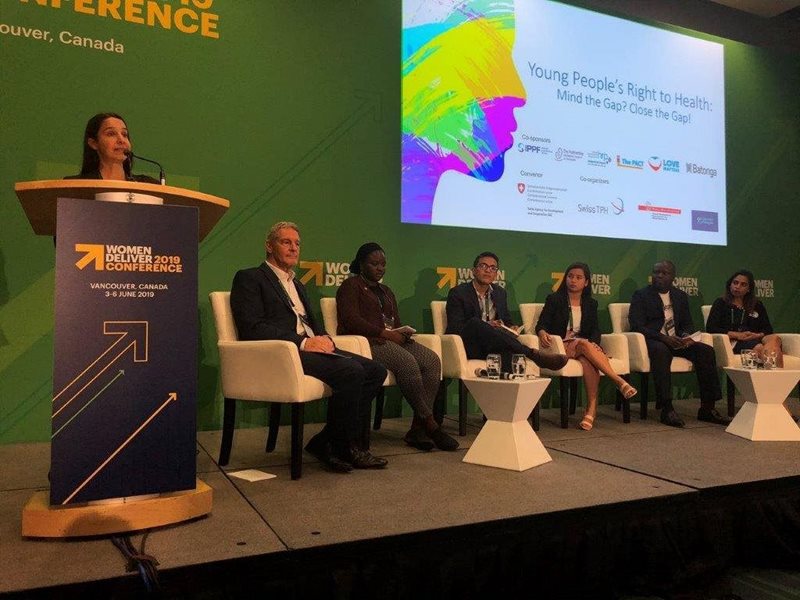
Has youth engagement become a publicity buzzword for politicians to stimulate young people’s appearance in public events for their own good? At the Women Deliver Conference, the figures spoke a different language. 1600 of the 8000 participants were young people and this time they made their voices heard. In our two sessions organised with the PMNCH youth constituency we heard that engagement can no longer be tokenistic or simply a seat at the table but needs to go further. Young people said clearly that they must be engaged at every stage, and in every discussion that will decide services, policies and programmes that affect their lives. Decisions on young people’s health cannot be made without meaningful youth involvement and it takes real commitment, safe spaces for youth and joint platforms with others to have their voices integrated in the public debate without discrimination or recrimination. New and innovated approaches, access to resources and capacity building is needed for real empowerment.
PMNCH, the International Youth Alliance for Family Planning (IYAFP), and FP2020 following a series of consultations with youth-led and youth-serving organizations from all over the world, spearheaded a Global Consensus on Meaningful Youth Engagement. This Global Consensus acknowledges that engagement with young people is critical to the attainment of sustainable global health and development goals, it defines the phrase ‘Meaningful Adolescent and Youth Engagement’ and identifies key principles upon which it should be grounded.
Let’s talk about sex… in a creative way
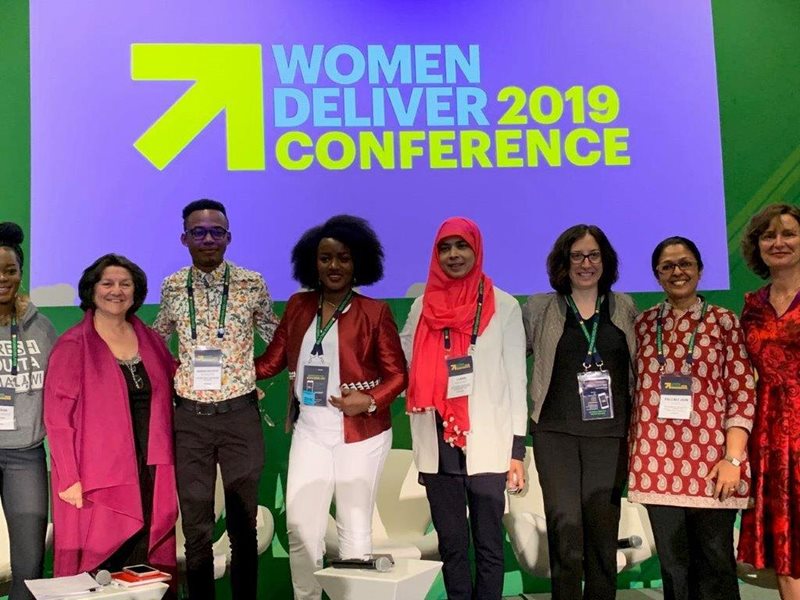
Young people want safe spaces and platforms to discuss their diversity and to freely express themselves. We heard strong emphasis placed on the importance of using non-traditional approaches to engage young people, tackling culturally sensitive issues and turn conversations from taboo to the public sphere. Engaging young people means an understanding of who they are, what language they speak, what culture they embrace and what sensitivities they are struggling with. Then we can develop and use youth-led platforms to engage them in discussions on difficult topics, such as SRHR.
We discovered how organizations and youth-led groups are using the power of media platforms, music, videos, performing arts, animation, peer-based technologies and applications to create information tools and dialogues on social attitudes and behaviour, and drive the conversation around sexual development, practices, contraceptives, relationships, education and the issues that impact the health and well-being of young people.
A great example was delivered by the Girl Effect’s work in Malawi through Zathu, a youth brand borne out of Malawian culture, which uses the power of music and storytelling to close the gender gap and tackle challenging topics such as relationships, stereotypes, self-expression and sexual health.
Girl Effect and Gavi are partnering to increase demand for HPV vaccines in Malawi and other developing countries.
SRHR - dancing the tango – one step forward, two steps back
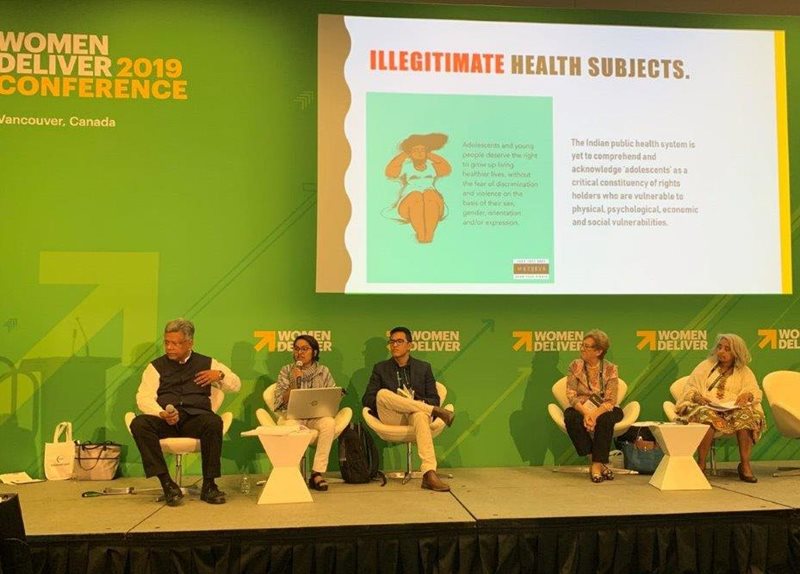
To achieve SDG 3 and universal health coverage, women and girls must be able to fully realize their rights to health and access to sexual and reproductive health-care services, including family planning. Yet in some contexts there has been opposition to elements of the SRHR agenda leading to a reversal of gains made for gender rights and equality. Partners’ were emphatic that the integration of SRHR into universal health coverage requires adherence to principles of bodily autonomy, informed choice and respect for rights. This means that women and girls must have the means and tools to decide about their sexual and reproductive lives. Policy-makers, practitioners, donors and civil society advocates shared key lessons learned. Partners also spoke about the need for increased domestic financing of SRHR services by countries; the importance of tracking national budget allocations and finally, resilience and robustness in responding to pushback and adversity. There was general concern that if the benefits of SRHR as a universal health coverage package are not made explicit then it will fall by the side-lines and not be included in national priorities, plans or budgets.
PMNCH members and allies have recently launched a global call to action for the full recognition and inclusion of SRHR in UHC. The call to action highlights the concrete steps national governments and the global community can take to ensure the highest attainable standard of health for women, girls and adolescents through their UHC programmes. It builds on existing evidence demonstrating the positive impact of a comprehensive package of SRHR interventions on health and wellbeing and provides direction on how to approach programme planning and financing.
Data drives advocacy
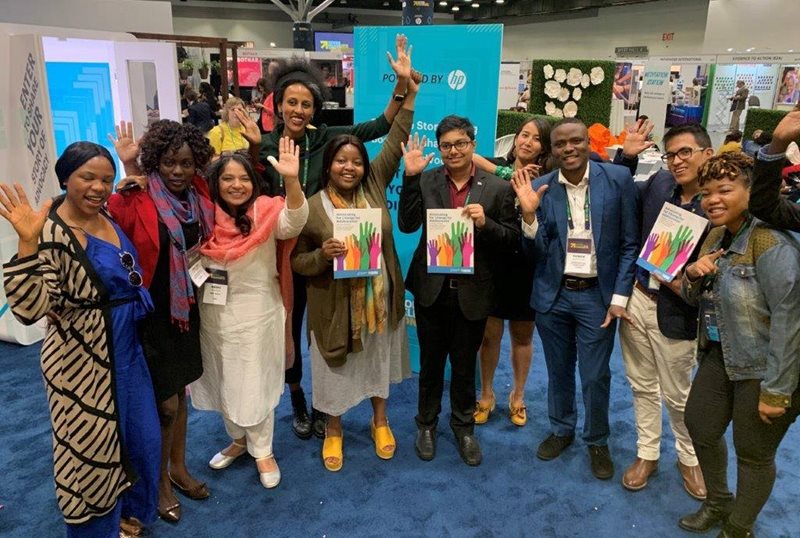
To meet the needs of women, girls and young people, to respect, fulfil and protect their human rights we need evidence and data to make the invisible visible and create an equitable world. Young people have special and diverse needs and in many parts of the world they are getting left behind, alienated by fragmented public health systems that do not cater properly to their needs. In some cases, young people have limited or no access to timely, accurate and gender-responsive information about their sexual and reproductive health and rights. Evidence based advocacy is crucial for improved decision and policy making, and data is needed for identifying gaps in access to and information about adolescent and youth-friendly services and to holding government to account. Young people called for their consorts to step up, equip themselves with information and use their voices to get organized and engaged in various platforms, such as the Global Financing Facility or PMNCH.
One of the talking points at Women Deliver, for the PMNCH Adolescent and Youth Constituency was the Advocating for Change for Adolescents Toolkit. This is a practical guide for young people, developed in consultation with them to advocate for improved adolescent health and wellbeing. The toolkit is a guide to the design, implement and monitor an effective national advocacy action roadmap –which considers data harvesting and analysis to bring about positive policy-specific changes for the health and wellbeing of adolescents. An updated version of the toolkit which was launched first six months ago includes stories and lessons learned from implementation in five countries.
Accountability matters – really?
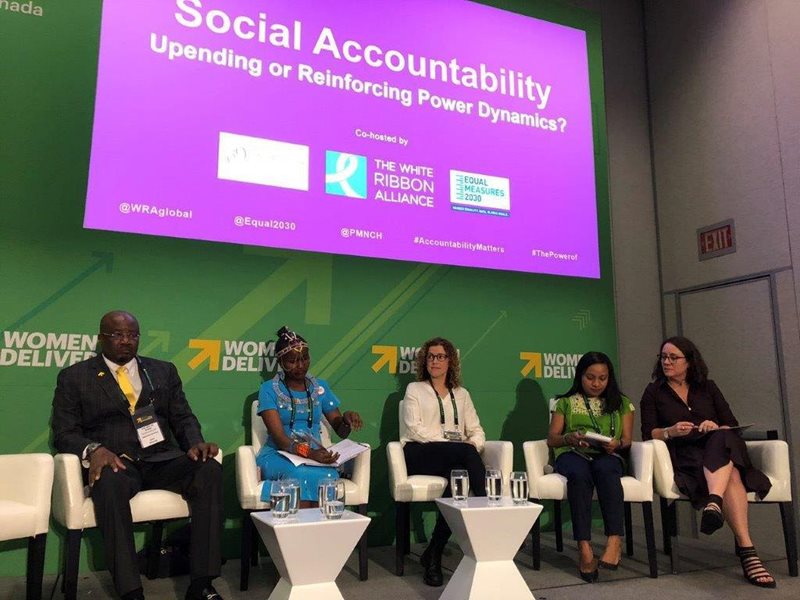
Accountability has been a cornerstone of the Every Woman Every Child movement since its launch in 2010. At the Women Deliver conference, PMNCH and partners organized two accountability events aimed at facilitating the tracking of resources, results and rights, including through multi-stakeholder commitments and multisectoral action. At the conference Canadian Prime Minister, Justin Trudeau announced that the Government of Canada will raise its funding to support women and girls’ health around the world to reach $1.4 billion annually, starting in 2023. On the back of that announcement, it was interesting to hear diverse experiences across areas of work critical to holding governments to account for budget commitments related to gender equality – from budget transparency and participatory budgeting to citizen-led monitoring to action and accountability. We also heard during our social accountability meeting from a parliamentarian, that it is very unpopular in his country to demand health budget tracking especially those which are allocated to women and children. We also heard about multi-stakeholder engagement at all levels, including through citizens’ hearings.
We still need more and better organized data. Substantial country support and ownership over national plans are required to ensure adequate data collection, compilation, data quality assessment and analysis, dissemination and use. Monitoring of health-system resources and investment in research for better monitoring is still a priority for the accountability work. During Women Deliver, WHO and partners launched a new data portal on the most up to date global health data, including regional and country data organized separately in the areas of maternal, newborn, child, and adolescent health.
Partnerships - how to get things done better
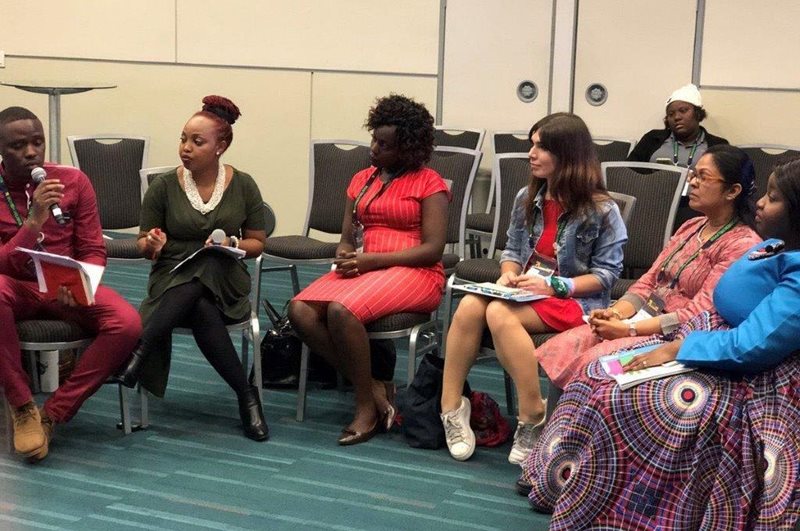
Adopting a holistic approach to health that not only ensures women, children and adolescents survive but can thrive and transform their world, requires working across sectors. One thing everybody agrees with is that working in partnership will power us towards achieving the SDGs. Partners bring different mandates, values and resources and when we rally behind an issue, things can get better as together we are stronger. Throughout the week, participants shared their experiences with partnerships –some spoke of the importance of programmes that go beyond care in the hospitals and into communities to identify root causes of problems and help families out of the cycle of disease, poverty, etc.- providing pathways in economic and social development. Others described accountability mechanisms ---budgetary and social -- to keep track of commitments made by politicians, so real change can be delivered. Finally, we heard about successful initiatives that integrate services and strategies across communities, constituencies and population groups ensuring that the right services are delivered to the people who need them, in time.
One example of how to get things done better in partnership is the Intensified Mission Indradhanush (IMI). This was an unprecedented collaboration between India’s Ministry of Health and Family Welfare, 12 other ministries and numerous health and non-health stakeholders launched by the Prime Minister of India on 8 October 2017. IMI targeted 173 districts and 17 urban areas with persistently low immunization coverage. In four rounds of IMI, by January 2018, an estimated 5.95 million children and 1.19 million pregnant women had been vaccinated. IMI demonstrated that, cross-sectoral collaboration and partnership, along with several system and practice changes, can be effective in reaching and vaccinating the highest-risk children and resistant populations.

.png?sfvrsn=6d0e27cd_1)



